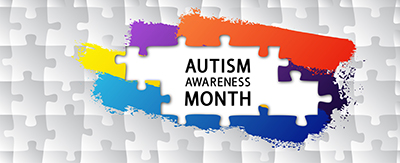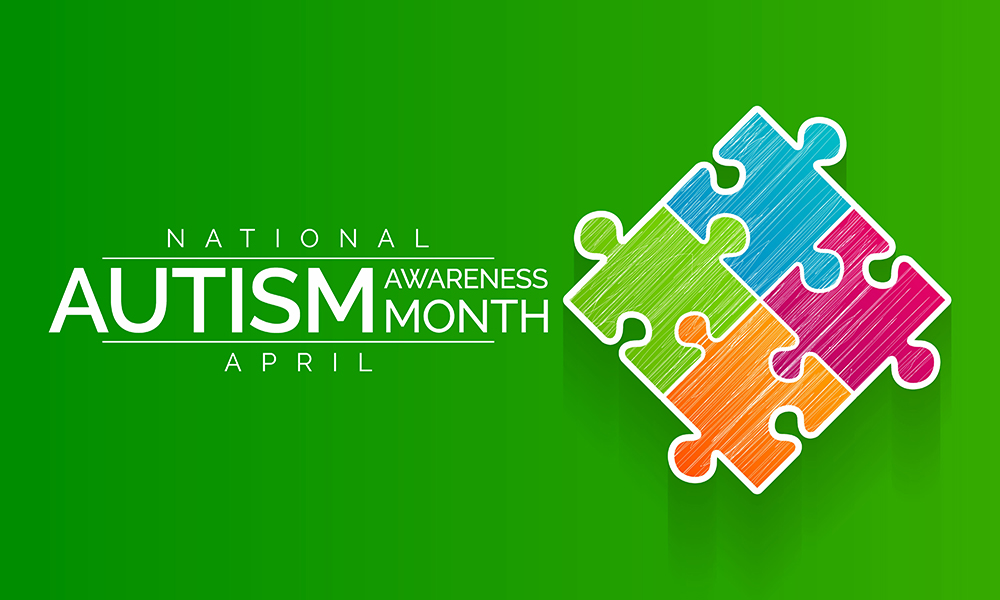
April is Autism Awareness Month, and there has been tremendous progress in understanding and accepting autism over the last decade. In honor of this special month, consider some of the positive changes that have occurred, as well as the work that remains to be done.
First and foremost, autism awareness has grown dramatically. As people have learned more about autism through research, their families, friends, employers, and the rest of the community have become more accepting and understanding. This increased understanding has also resulted in more resources being put in place for those living with autism, such as improved medical care, access to supportive services, and improved educational opportunities.
About Autism
Autism spectrum disorder (ASD) is a complex neurodevelopmental disorder characterized by difficulties with social interaction, communication, and restricted and repetitive behaviors. ASD patients may also exhibit unusual responses to sensory experiences such as sound, touch, and other sensations.
Autism is a spectrum disorder, which means that the severity of symptoms and their combination can vary greatly from person to person. Some people with ASD may require substantial assistance in their daily lives, whereas others may require less assistance and, in some cases, live independently.
People with ASD often have difficulties with social interactions, verbal and nonverbal communication, restricted interests, and repetitive behaviors. ASD patients may also struggle with executive functioning skills such as organization, planning, problem solving, and multitasking. Furthermore, some people with ASD may exhibit unusual responses to sensory stimuli such as sound, light, and smell.
The exact cause of ASD is unknown, but evidence suggests that it is caused by a combination of genetic and environmental factors. ASD has no cure, but early intervention can improve outcomes. Treatment approaches may include behavior therapy, communication therapy, and other interventions to help with social and daily living skills.
History of Autism Awareness Month
Dr. Rimland established the Society for Autism in 1965 to promote research, assistance, and guidance for those living with autism, as well as to assist those who live with people who face the world with autism in gaining a better understanding of what was going on with their loved ones. The Society for Autism fought for people with autism by assisting in the passage of legislation in Section 504 of the Americans with Disabilities Act to recognize and protect them.
Their campaigns began in the early 1970s and continue to this day; Autism Acceptance Month was established to promote a better understanding between those with autism and to be a part of the world they live in rather than standing outside looking in. The face of autism is not set in stone, and it can manifest in a variety of ways. Every person who lives with this condition faces unique challenges based on where they fall on the autism spectrum and which aspects of the condition they are most affected by.
The language used to describe autism has also changed, with the term “neurodiversity” becoming more popular. The concept of neurodiversity holds that neurological differences are natural and should be celebrated rather than viewed as disabilities. This term has shifted the conversation away from seeing autism as a deficit and toward something to be celebrated, which has been extremely beneficial in raising awareness and acceptance.
How to Celebrate Autism Awareness Month
During Autism Awareness Month, we can all contribute to making the world a more accepting place for people with autism. We can accomplish this by educating ourselves on the subject and becoming allies, particularly with those in our community who are autistic. We can also help organizations and initiatives dedicated to helping people with autism by donating money or volunteering our time. The following are ways you can help:
1. Wear blue: Show your support for autism awareness by wearing blue during the month of April.
2. Make donations: Support autism-related charities by donating your time, money, or resources.
3. Educate yourself: Take the time to learn about autism, its causes, and treatments.
4. Participate in events: Attend or host an event that celebrates those with autism.
5. Spread the word: Tell your friends, family, and social media followers about autism awareness month and its importance.
6. Get creative: Come up with unique and creative ways to show your support for autism awareness.
The progress made in autism awareness and acceptance over the last decade has been incredible, but there is still work to be done in terms of raising awareness and acceptance. People with autism still face prejudice, misunderstanding, and a lack of services and resources that are right for them. This is why it is so important to keep spreading awareness and working toward a society that is more accepting of everyone.
MCR and Autism Awareness
MCR Health is dedicated to raising awareness and advocating for individuals with autism. We work hard to provide comprehensive, kind, and thorough care to people on the autism spectrum and their families. Our team of highly trained professionals is passionate about serving our neurodivergent community. We believe in providing evidence-based, individualized treatment plans that are tailored to the specific needs of each patient. We work hard to create an inclusive and safe environment for those on the autism spectrum, and we are committed to raising autism awareness and acceptance. Our goal is to serve as a resource for our patients and their families, providing support and direction as they navigate the autism spectrum.

